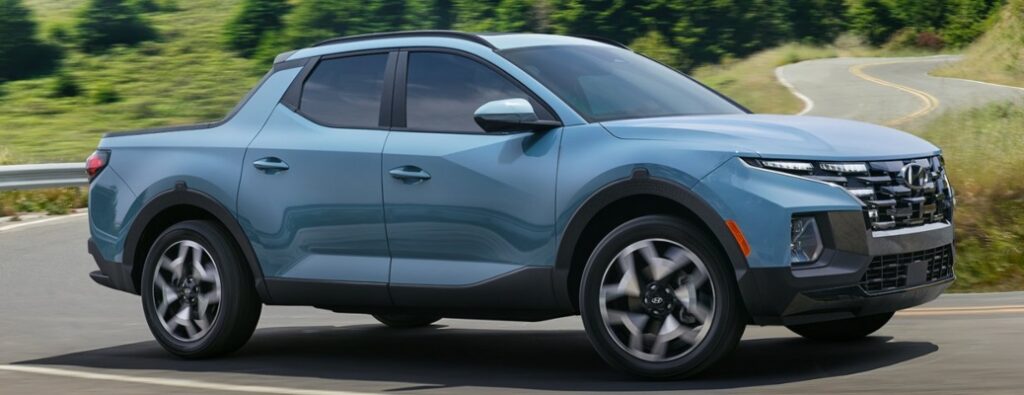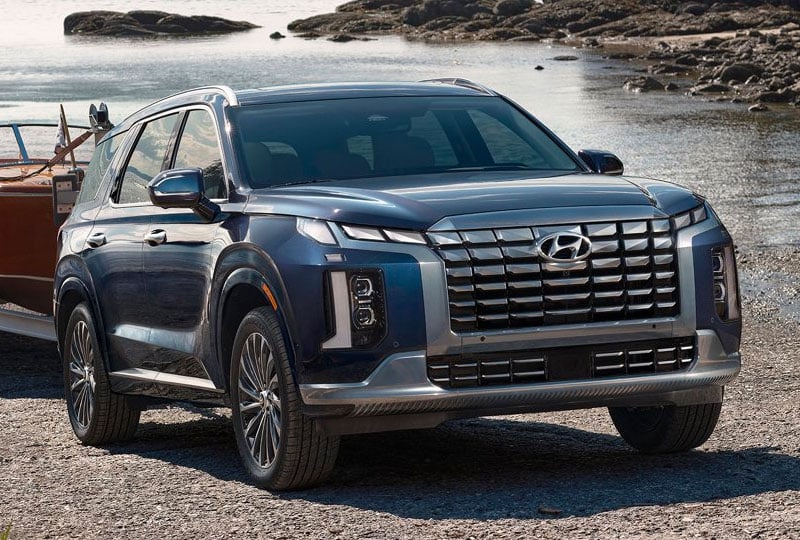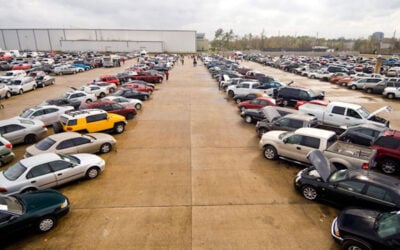
Hyundai Motor America and the NHTSA have issued a Hyundai recall for nearly 568,000 pickups and crossovers in the U.S. with potentially faulty trailer harness modules, posing a fire risk. The affected vehicles include 2019-23 Santa Fe midsize crossovers, 2021-23 hybrids, 2022-23 plug-in hybrids, and 2022-23 Santa Cruz compact pickups. Owners are advised to park their vehicles outside and away from structures until repairs are completed.
The Hyundai Recall: An Overview
On March 23, Hyundai and the U.S. NHTSA issued a recall notice that immediately impacted over half a million vehicles. These vehicles may be equipped with an accessory tow hitch assembly available for purchase through Hyundai or a dealership. Water accumulation on the tow hitch harness module printed circuit board (PCB) could cause an electrical short, leading to a fire. Hyundai has reported six incidents potentially related to this faulty component in the U.S., including one fire report and five reports of thermal damage isolated to the trailer harness module. No confirmed crashes or injuries have been associated with the issue.
The tow hitch module and wiring harness are manufactured by Korean auto supplier Segi. As an interim repair, dealers will inspect the module and remove the fuse as necessary. When the final repair is available, dealers will install a new fuse and wire extension kit. Dealers and owners will be notified starting May 16.
See if your vehicle is included in this recall with Hyundai’s VIN checker.
This year, Hyundai has issued six recalls affecting over 843,000 U.S. vehicles, according to NHTSA data. Kia America, a sibling company, is also recalling about 3,500 Carnival minivans for the same issue, with no reported fires, injuries, crashes, or deaths. The tow hitch harness supplier for Kia vehicles is Mobis Parts America.
Hyundai’s History with Recalls and Class Action Settlements

This Hyundai recall follows millions of vehicles recalled in 2022 due to a separate fire risk. Previously, Hyundai and Kia owners began suing the automakers in 2015 after they refused to pay for repairs or replacements of the Theta II engine. Unsurprisingly, Hyundai eventually settled the class-action suit.
The plaintiffs in the lawsuit alleged that the Class Vehicles suffered from a defect that could cause engine seizure, stalling, engine failure, and engine fire. They also claimed that engine seizure or stalling could be dangerous if experienced and that some owners and lessees had been improperly denied repairs under the vehicle’s warranty. HMA and HMC denied the plaintiffs’ allegations.
The affected “Class Vehicles” included 2011–2019 model year Hyundai Sonata, 2013–2019 model year Hyundai Santa Fe Sport, and 2014–2015 and 2018–2019 model year Hyundai Tucson equipped with 2.0 liter and 2.4 liter genuine Theta II gasoline direct injection engines within OEM specifications.
There’s More: A New Hyundai Class Action Settlement
In early 2023, an additional 2.1 million vehicles were included in a Hyundai and Kia class action settlement. While the previous settlement covered vehicles equipped with Theta II gasoline direct injection (GDI) engines, a more recent settlement aims to resolve several cases that claimed the automakers’ Theta II 2.4-liter multipoint fuel injection (MPI), 1.6-liter Gamma GDI and 2.0-liter Nu GDI engines are plagued by the same defect, which can allegedly cause engine seizures, failures and even fires.
Learn more about the new 2023 additions to the Hyundai and Kia class action settlement here.
Stay Informed, and Take This Seriously
The latest Hyundai recall affecting nearly 568,000 vehicles in the U.S. highlights the importance of addressing potential fire risks in vehicles. Owners of affected Santa Fe and Santa Cruz models are advised to park their vehicles outside and away from structures until necessary repairs are completed. Hyundai’s history with recalls and class-action settlements underscores the need for automakers to prioritize safety and customer satisfaction. Owners should stay informed about any recalls and take appropriate action to ensure their vehicles are safe and well-maintained.
Be sure to check if your vehicle is included in this Hyundai recall at Hyundai’s official recall checker.








![10 Cars with the Lowest Cost of Ownership [2026 Data]](https://caredge.com/wp-content/uploads/2026/02/2026-Toyota-Corolla-Hatchback-400x250.png)




0 Comments